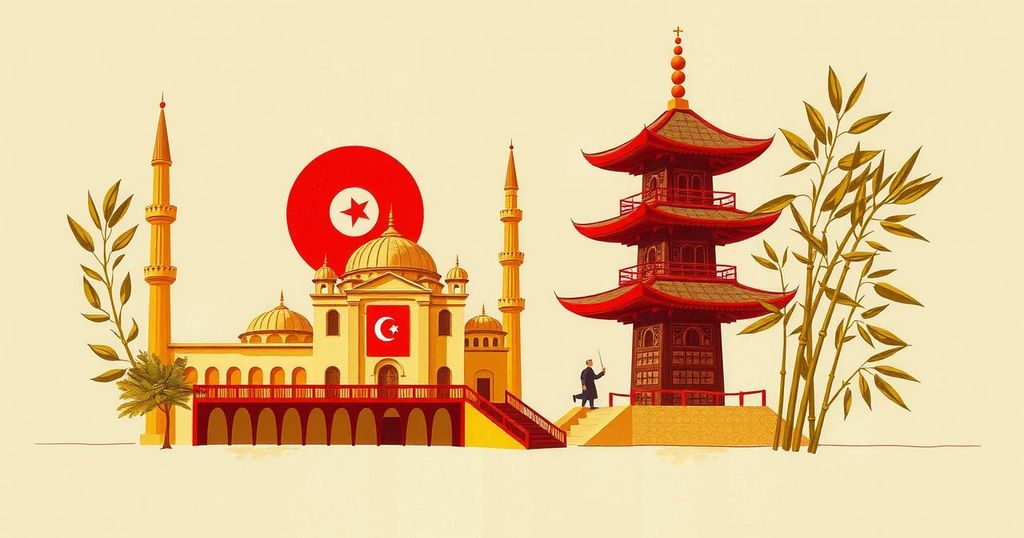Tunisian Ambassador to China, Adel Elarbi, underscores the importance of China’s “two sessions” for global policy formulation. He praises China’s market openness and initiatives in cultural exchange and green economy, marking the 60th anniversary of Tunisia-China relations in 2024. Elarbi advocates for deeper strategic cooperation, particularly through the Belt and Road Initiative, and encourages Chinese investments in Tunisia as a gateway to broader markets.
The recent conclusion of China’s “two sessions”—a crucial political framework for shaping policy direction—was discussed by Tunisian Ambassador to China, Adel Elarbi in an exclusive interview. He termed the sessions as a vital platform for exchanging evaluations and planning for the future. Ambassador Elarbi commended China’s market openness, deepened cultural exchanges, and initiatives promoting a green economy, asserting that China’s development journey is essential for global advancement.
Elarbi noted the significant global interest in the “two sessions,” evidenced by over 3,000 domestic and foreign journalists in attendance. He cited China’s position as an influential global player, emphasizing its political and economic significance in fostering balance and promoting peace, stability, and development worldwide.
Particularly interested in China’s international economic and political partnerships, Elarbi reflected on the historical ties between Tunisia and China. The upcoming 60th anniversary of diplomatic relations in 2024 is marked by Tunisian President Kais Saied’s planned visit to China, during which a joint statement will be signed to establish a strategic partnership facilitating multifaceted cooperation.
Ambassador Elarbi expressed a desire for elevated cooperation at a strategic level. He referenced the 2025 government work report, which outlines China’s commitment to high-quality Belt and Road Initiative (BRI) cooperation. As a BRI participant, Tunisia aims to enhance collaboration in infrastructure, green economy, and technological advancement areas, viewing BRI as a means to address mutual aspirations and cooperation opportunities.
He encouraged increased Chinese investment in Tunisia, portraying it as a portal to broader markets in Africa, the Arab region, and the European Union. He highlighted an African proverb, stating, “If you want to go fast, go alone; if you want to go far, go together,” reinforcing the belief in collective progress and mutual learning between nations. In conclusion, Elarbi remarked on the importance of collaboration in discovering new perspectives and advancing mutual understanding and growth.
In summary, Ambassador Adel Elarbi emphasizes the significance of China’s “two sessions” and advocates for enhanced strategic cooperation between Tunisia and China. He highlights the historical friendship, aspirations within the Belt and Road Initiative, and the potential for greater economic collaboration, all backed by a mutual learning ethos. Elarbi firmly believes that united efforts will lead to substantial progress and development for both nations.
Original Source: www.ecns.cn




